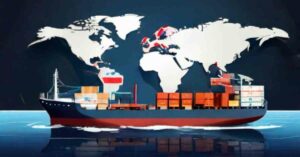
Somali Pirates Make Contact With Owners Of Hijacked Ship, MV Abdullah, After 8 Days
March 21, 2024
zero44 Introduces First User-Friendly “FuelEU Maritime Calculator” To Tackle Shipping Costs
March 21, 2024

Ten major organizations have united to fight illegal wildlife trafficking in international supply chains as a response to the continuous threat this criminal activity poses. Wildlife crime not only puts many species in danger but also disturbs ecosystems and threatens local and global economies.
The World Shipping Council is leading this program, with backing from the United Nations Development Programme, the Global Environment Facility, and the Global Wildlife Program.
Organisations such as TRAFFIC and WWF are working alongside co-sponsors such as BIC, Global Shippers Forum, the International Fund for Animal Welfare, and the TT Club.
The alliance highlights the need for increased monitoring across global supply chains, particularly within the maritime sector. Illegal wildlife trafficking is made possible by the enormous volume of trade carried by sea. Criminals utilize loopholes in these supply chains, demanding coordinated actions to prevent their operations.
The coalition has issued useful guidelines for all supply chain partners to address this issue. These guidelines include questions for identifying illegal wildlife trading, suggestions for reporting suspicious activity, and practical advice that can be put into practice. The related “Red Flags” document is a daily reference for supply chain personnel.
The shared responsibility across global containerized supply chains is essential to these initiatives. All stakeholders, particularly consolidators and those involved in the packing or carriage of commodities, must take proactive precautions to prevent the shipping of illicit wildlife.
This includes ensuring cargo validity, correctly sealing shipments, completing risk assessments, and swiftly notifying national authorities of suspected activity.
The Joint Industry Rules for Combatting Illegal Wildlife Trafficking supplement existing International Maritime Organization (IMO) rules by providing particular recommendations to private sector stakeholders.
The group has shared these principles with the IMO to encourage the maritime community to take additional note and action.
The illegal trade in wildlife poses a threat not only to threatened species but also to international security and organized crime. This collaboration demonstrates the associated organizations’ commitment to safeguarding animals and supporting sustainable trading practices, emphasizing the joint responsibility of all stakeholders in addressing this illegal activity.
Reference: ifaw
World Shipping Council Leads Global Initiative To Combat Illegal Wildlife Trafficking appeared first on Marine Insight – The Maritime Industry Guide
Source: Maritime Shipping News


